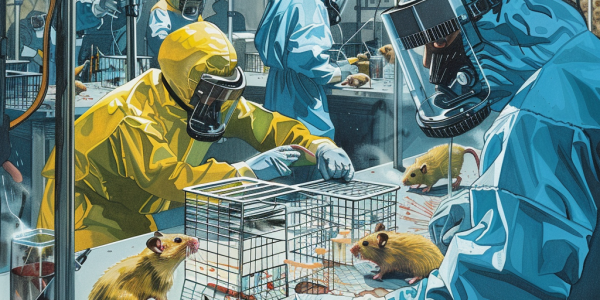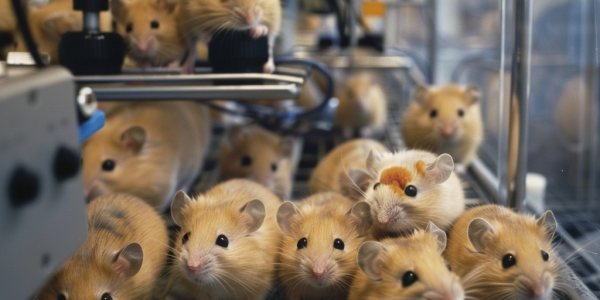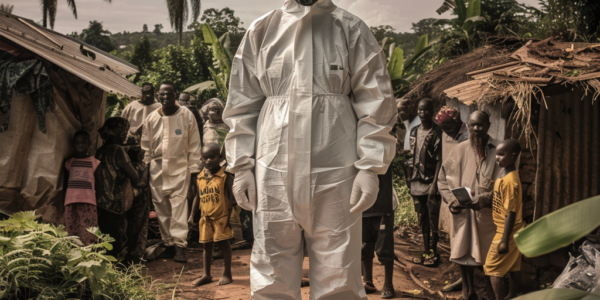Deadly Virus Spread by Rodents in Northern Europe Raises Concerns
Learn about the spread of a potentially lethal virus from rodents to humans in northern Europe, causing haemorrhagic fever. Researchers in Sweden have identified bank voles carrying the Puumala virus, which can lead to severe conditions like hemorrhagic fever. Discover how this unexpected spread of vole fever is prompting further investigation to prevent potential outbreaks and protect public health.
Chinese Scientists Create Mutant Ebola Virus With Horrific Symptoms
Chinese scientists at Hebei Medical University created a mutant Ebola virus in a lab, causing severe symptoms in hamsters similar to those in human patients. By incorporating a protein from Ebola, the researchers shed light on the virus’s effects on various organs. This study highlights the potential for rapid preclinical assessments of Ebola treatments and emphasizes the importance of responsible research practices in studying highly virulent pathogens.
Chinese Scientists Create Mutant Ebola Virus in Lab Setting
Chinese scientists have created a mutant Ebola virus in a lab setting to study transmission and treatment strategies. By infecting hamsters with this engineered virus, the researchers observed severe symptoms similar to those seen in human Ebola patients, including eye secretions and scab formation. This innovative approach allows for safer studies on Ebola in lower security facilities, potentially leading to advancements in combating the virus and enhancing global health preparedness.
Understanding Lassa Fever: A Lesser-Known Threat
Learn about the recent case of Lassa fever in Paris, France and how it compares to the Ebola virus. Discover the symptoms, transmission, and treatment options for this viral infection caused by the Lassa mammarenavirus, which poses a significant threat to human health.
The Urgent Need for Global Pandemic Preparedness in the Wake of the Ebola Outbreak
Dr. Maria Guevara, MSF international medical secretary, emphasizes the urgent need for global pandemic preparedness in the wake of the devastating impact of the Ebola outbreak in West Africa. Despite substantial investments in research and development for Ebola vaccines and treatments, the majority of medical resources remain unused, exacerbating disparities in outbreak prevention and response. The failures observed during previous outbreaks serve as a stark reminder of the persistent inequities that leave the world ill-prepared for future international public health crises.
Scientists Make Groundbreaking Discovery in Understanding Ebola Virus Replication Process
Scientists in Canada and the U.S. have made a groundbreaking discovery in understanding the replication process of the deadly Ebola virus. The research sheds light on how the virus interacts with a human protein called ubiquitin and identifies a potential target for new drugs to prevent the disease. The study utilized a combination of experimental and computational methods to investigate the interaction between the Ebola virus VP35 protein and ubiquitin chains, leading to the identification of potential chemical compounds that could disrupt this interaction. This breakthrough offers a promising avenue for the creation of more effective therapies to combat the devastating outbreaks and high mortality rates of the Ebola virus.






